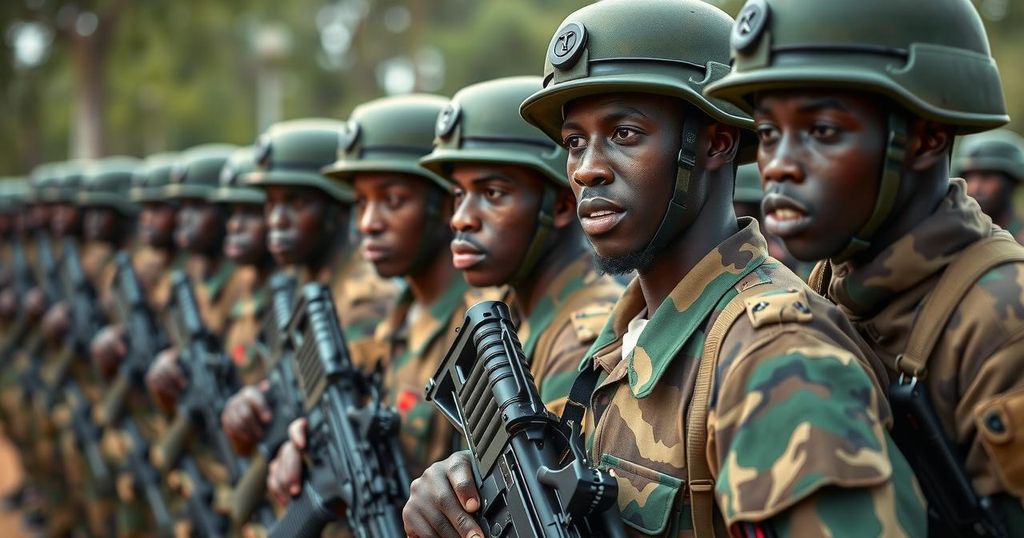The Congolese Army has captured Rwandan soldier Private Hakizimana Iradukunda Jean during clashes with suspected M23 rebels. His capture illustrates the alleged Rwandan support for the insurgency, which Kigali disputes, accusing the DRC of harboring the FDLR. This event heightens tensions in the already volatile eastern Congo, complicating regional stability efforts and posing a threat to the Great Lakes region.
The Armed Forces of the Democratic Republic of Congo (FARDC) have reported the capture of Private 1st Class Hakizimana Iradukunda Jean, a Rwandan soldier, during ongoing confrontations in eastern Congo. Private Hakizimana was intercepted on December 21 near Mambasa Hill amid battles between FARDC special forces and suspected M23 rebel fighters. Congolese military officials assert that his capture highlights direct Rwandan involvement in aiding the M23 insurgency, a claim that Rwanda disputes vehemently.
Born on February 22, 2002, in Rwanda, Private Hakizimana was reportedly among 900 recruits trained at the IWAWA/Karongi Training Center in 2023. FARDC officials have articulated concerns that this training center is associated with the preparation for M23 operations. After concluding his training, it is alleged that he, along with other recruits, crossed into the DRC through Kinigi and was subsequently integrated into the 3rd Brigade of M23 rebels with Colonel Kabundi leading the force.
Rwanda has consistently rejected allegations of its involvement, countering that the DRC harbors the Democratic Forces for the Liberation of Rwanda (FDLR), a group responsible for atrocities during the 1994 Rwandan Genocide. Rwandan President Paul Kagame has accused Congolese President Félix Tshisekedi of attempting to destabilize Rwanda, asserting that the DRC collaborates with malicious elements intent on harming Rwandan security.
The emergence of Private Hakizimana’s capture exemplifies the escalating tension between the DRC and Rwanda, with both nations trading accusations over supporting armed factions. This ongoing conflict complicates stability efforts in the region. Following this incident, FARDC has pledged to enhance military operations against insurgent groups, while Rwanda maintains that true progress on peace hinges on the addressing of anti-Rwandan forces like the FDLR in Congo. This dynamic illustrates the risk of cross-border conflicts and the potential for broader implications for the Great Lakes region.
The tensions between Rwanda and the Democratic Republic of Congo stem from complex historical grievances and ongoing military engagements in eastern Congo. The M23 rebellion has been a significant focal point for conflict, with allegations concerning the involvement of Rwandan forces contributing to instability in the region. The DRC asserts that Rwanda supports these insurgents, while Rwanda accuses the DRC of allowing anti-Rwanda groups, such as the FDLR, to thrive. This cycle of accusations has heightened distrust and complicates peacekeeping efforts in the area, leading to potential regional destabilization.
The capture of Rwandan soldier Private Hakizimana Iradukunda Jean by FARDC amid ongoing skirmishes further accentuates the fraught relationship between the Democratic Republic of Congo and Rwanda. As both nations engage in mutual accusations regarding support for armed insurrection, the implications for regional peace and stability grow more serious. With FARDC committed to intensifying operations against armed groups and Rwanda urging the resolution of internal threats, the conflict continues to pose risks of broader unrest in the Great Lakes region.
Original Source: chimpreports.com






